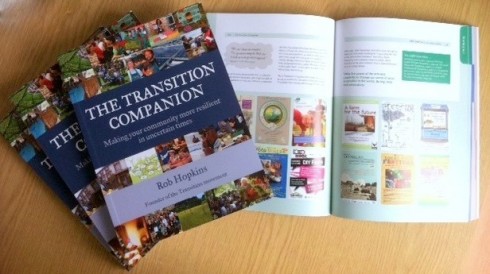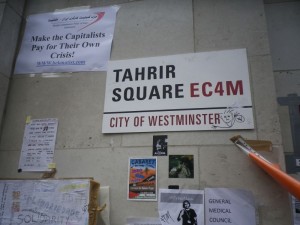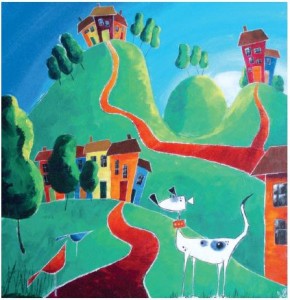Transition Culture has moved
I no longer blog on this site. You can now find me, my general blogs, and the work I am doing researching my forthcoming book on imagination, on my new blog.
Come find me at robhopkins.net
Archive for “Culture” category
Showing results 41 - 45 of 183 for the category: Culture.
25 Nov 2011
 While there has been much discussion in terms of Transition and diversity over the past few years, little has been said about the issue of age. It’s not something we’ve explored here at Transition Culture in the past. Sometimes it is suggested that Transition only appeals to older people, whereas Occupy, for example, tends to attract more younger people. But is that the case? Is it that straightforward? How might Transition best serve people at the different stages in their lives, and what might they, in turn, bring to it? What are the things that attract people of different ages and what do they hope to get out of their engagement? I ask these questions by way of stimulating discussion, and thought a useful framing might be William Shakespeare’s Seven Ages of Man (with apologies to female readers for Shakespeare’s gender focus), from ‘As You Like It’. It begins:
While there has been much discussion in terms of Transition and diversity over the past few years, little has been said about the issue of age. It’s not something we’ve explored here at Transition Culture in the past. Sometimes it is suggested that Transition only appeals to older people, whereas Occupy, for example, tends to attract more younger people. But is that the case? Is it that straightforward? How might Transition best serve people at the different stages in their lives, and what might they, in turn, bring to it? What are the things that attract people of different ages and what do they hope to get out of their engagement? I ask these questions by way of stimulating discussion, and thought a useful framing might be William Shakespeare’s Seven Ages of Man (with apologies to female readers for Shakespeare’s gender focus), from ‘As You Like It’. It begins:
“All the world’s a stage,
And all the men and women merely players,
Read more»
14 Nov 2011

This book seeks to answer the question:
“What would it look like if the best responses to peak oil and climate change came not from committees and Acts of Parliament, but from you and me and the people around us?”
It’s a big question, which is why it requires this relatively big book to address it, but I think you’re going to enjoy the pages ahead, and the journey they will take you on. For the first The Transition Handbook, published in 2008, this was pretty much a speculative question, but for this new book we are able to draw from what has, in effect, been a five-year worldwide experiment, an attempt to try to put the Transition idea into practice. I think it is one of the most important social experiments happening anywhere in the world at the moment. I hope that by the end of this book you will agree, that if you aren’t involved you will want to get involved, and if you are already involved, it will affirm, inspire and deepen what you are doing and give you a new way of looking at it.
Read more»
10 Nov 2011
 I spent most of the day yesterday around St. Pauls’ Cathedral visiting the Occupy London Stock Exchange camp there. With hindsight I probably didn’t pick the best day. November 9th was also the day of the student protests and the police presence in the city was the biggest I think I have ever seen in my life. From the moment I left St. Pauls’ tube station, there were ranks of police, policevans, dogs, horses, all kinds of different police units all over the place. During the day I was often reminded of ‘Apocalypse Now’ or ‘Boyz in the Hood’, given the constant noise of helicopters overhead, which at times, even made conversation difficult.
I spent most of the day yesterday around St. Pauls’ Cathedral visiting the Occupy London Stock Exchange camp there. With hindsight I probably didn’t pick the best day. November 9th was also the day of the student protests and the police presence in the city was the biggest I think I have ever seen in my life. From the moment I left St. Pauls’ tube station, there were ranks of police, policevans, dogs, horses, all kinds of different police units all over the place. During the day I was often reminded of ‘Apocalypse Now’ or ‘Boyz in the Hood’, given the constant noise of helicopters overhead, which at times, even made conversation difficult.
Read more»
2 Nov 2011

A bumper harvest of apples has resulted in an abundance of top Transition stories in the UK! Local fruit harvesters, now part of Transition Kensal to Kilburn (K2K) were joined by the newly- formed Transition Willesden in setting up stall with traditional apple press in tow on the Kilburn High Road to make juice from locally-picked fruit. As temperatures soared on an unusually hot autumn day, over 200 shoppers and children helped press the fruit, taste the juice and join in the fun (see above). Pictures of the stall can be seen here; and local press coverage here, here and here. Thanks to Viv Stein of K2K for this great story!
Read more»
21 Oct 2011
Here is an article I wrote for the latest edition of Resurgence. You can see the pdf. of it here, probably the best way to read it, as it is so beautifully laid out and designed.
 In 2006, when we started what has since become the Transition movement, we imagined it as an environmental movement. It was conceived as a solutions-focused, bottom-up response to peak oil and climate change. Now, with five years of experimentation and experience under our belts, we see it more as a cultural movement, exploring what the culture of a place needs to look like in order for it to be best prepared for increasingly uncertain times (contracting energy supplies, price volatility, economic uncertainty, and so on).
In 2006, when we started what has since become the Transition movement, we imagined it as an environmental movement. It was conceived as a solutions-focused, bottom-up response to peak oil and climate change. Now, with five years of experimentation and experience under our belts, we see it more as a cultural movement, exploring what the culture of a place needs to look like in order for it to be best prepared for increasingly uncertain times (contracting energy supplies, price volatility, economic uncertainty, and so on).
Read more»
 While there has been much discussion in terms of Transition and diversity over the past few years, little has been said about the issue of age. It’s not something we’ve explored here at Transition Culture in the past. Sometimes it is suggested that Transition only appeals to older people, whereas Occupy, for example, tends to attract more younger people. But is that the case? Is it that straightforward? How might Transition best serve people at the different stages in their lives, and what might they, in turn, bring to it? What are the things that attract people of different ages and what do they hope to get out of their engagement? I ask these questions by way of stimulating discussion, and thought a useful framing might be William Shakespeare’s Seven Ages of Man (with apologies to female readers for Shakespeare’s gender focus), from ‘As You Like It’. It begins:
While there has been much discussion in terms of Transition and diversity over the past few years, little has been said about the issue of age. It’s not something we’ve explored here at Transition Culture in the past. Sometimes it is suggested that Transition only appeals to older people, whereas Occupy, for example, tends to attract more younger people. But is that the case? Is it that straightforward? How might Transition best serve people at the different stages in their lives, and what might they, in turn, bring to it? What are the things that attract people of different ages and what do they hope to get out of their engagement? I ask these questions by way of stimulating discussion, and thought a useful framing might be William Shakespeare’s Seven Ages of Man (with apologies to female readers for Shakespeare’s gender focus), from ‘As You Like It’. It begins:




